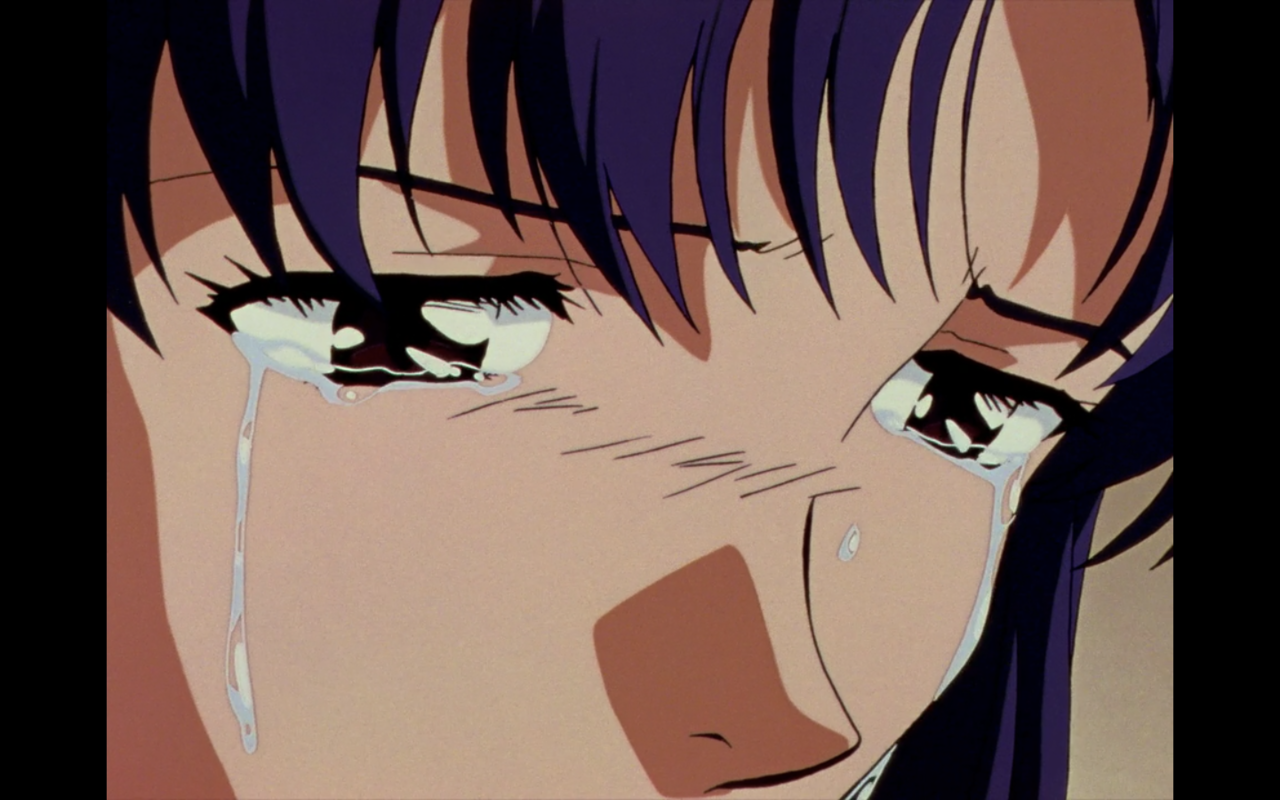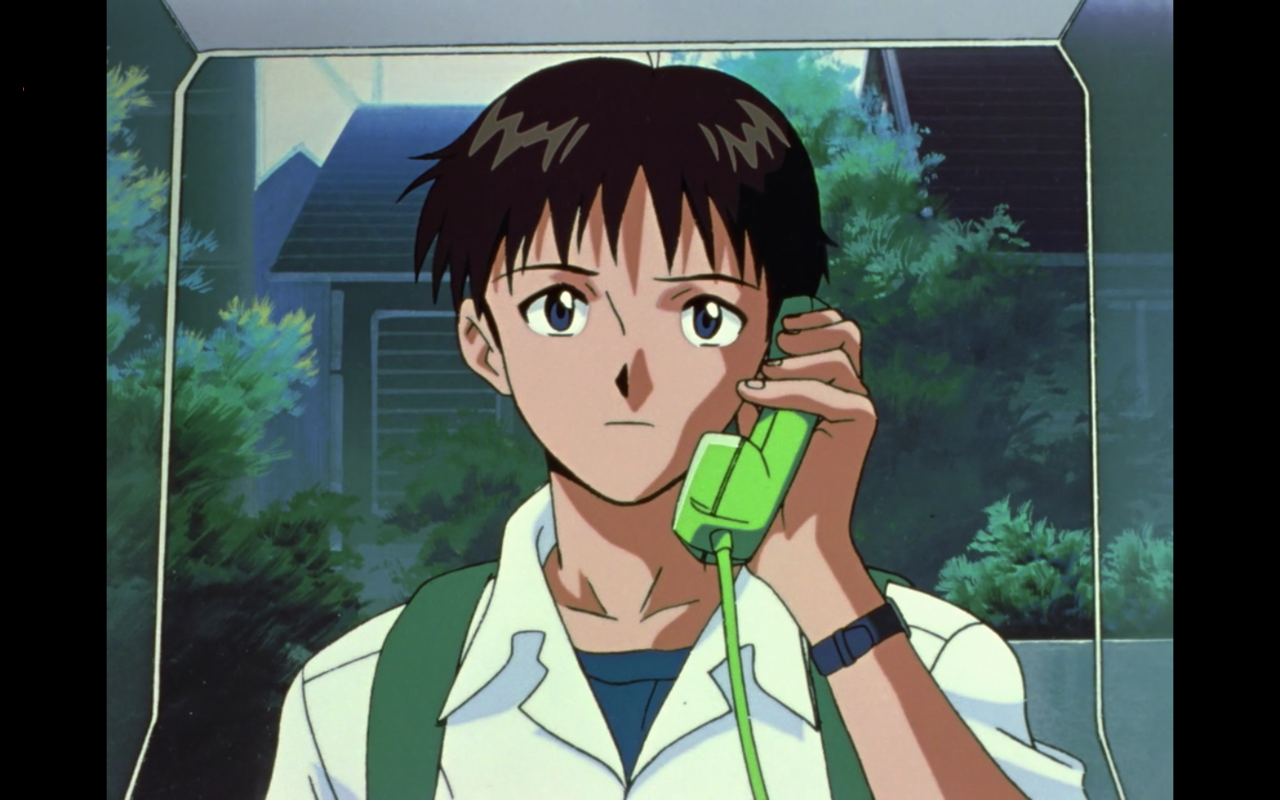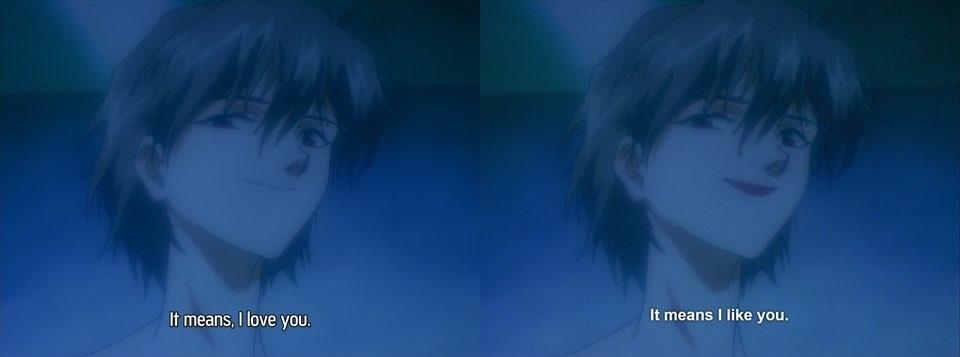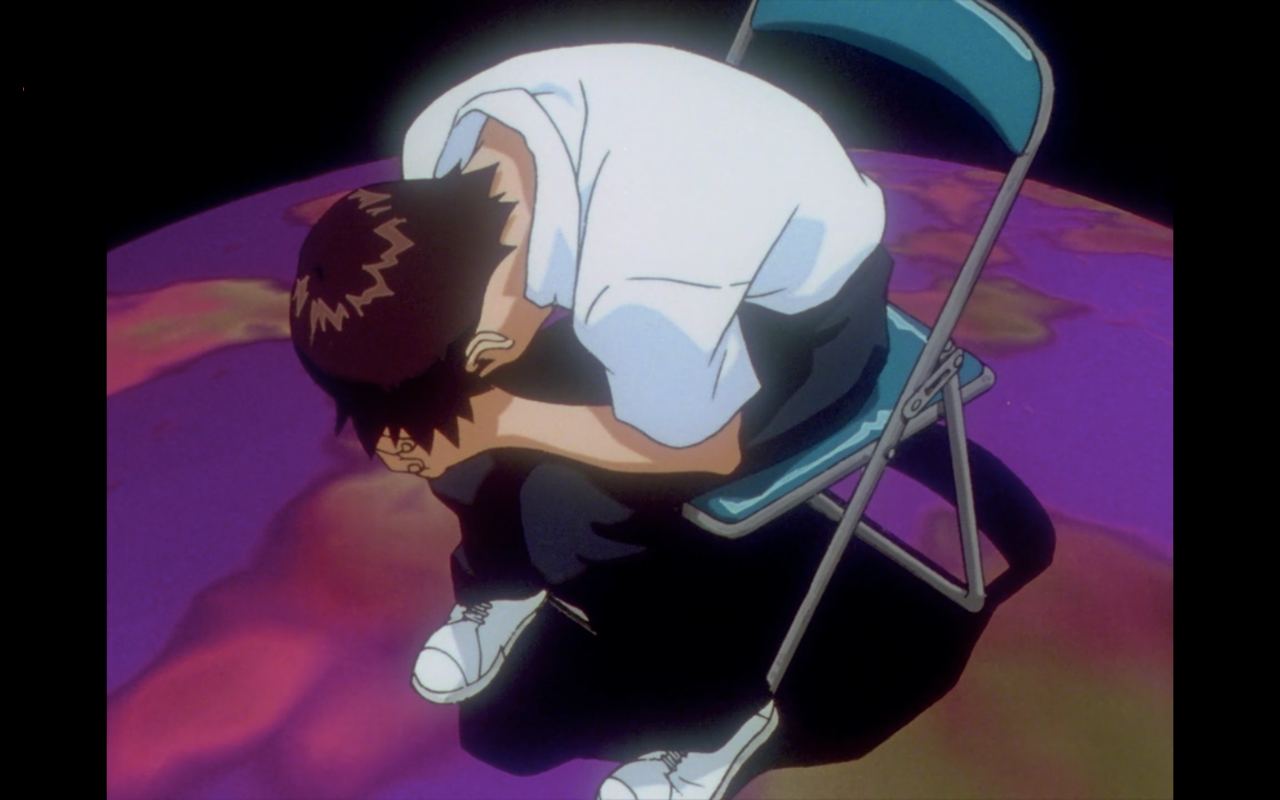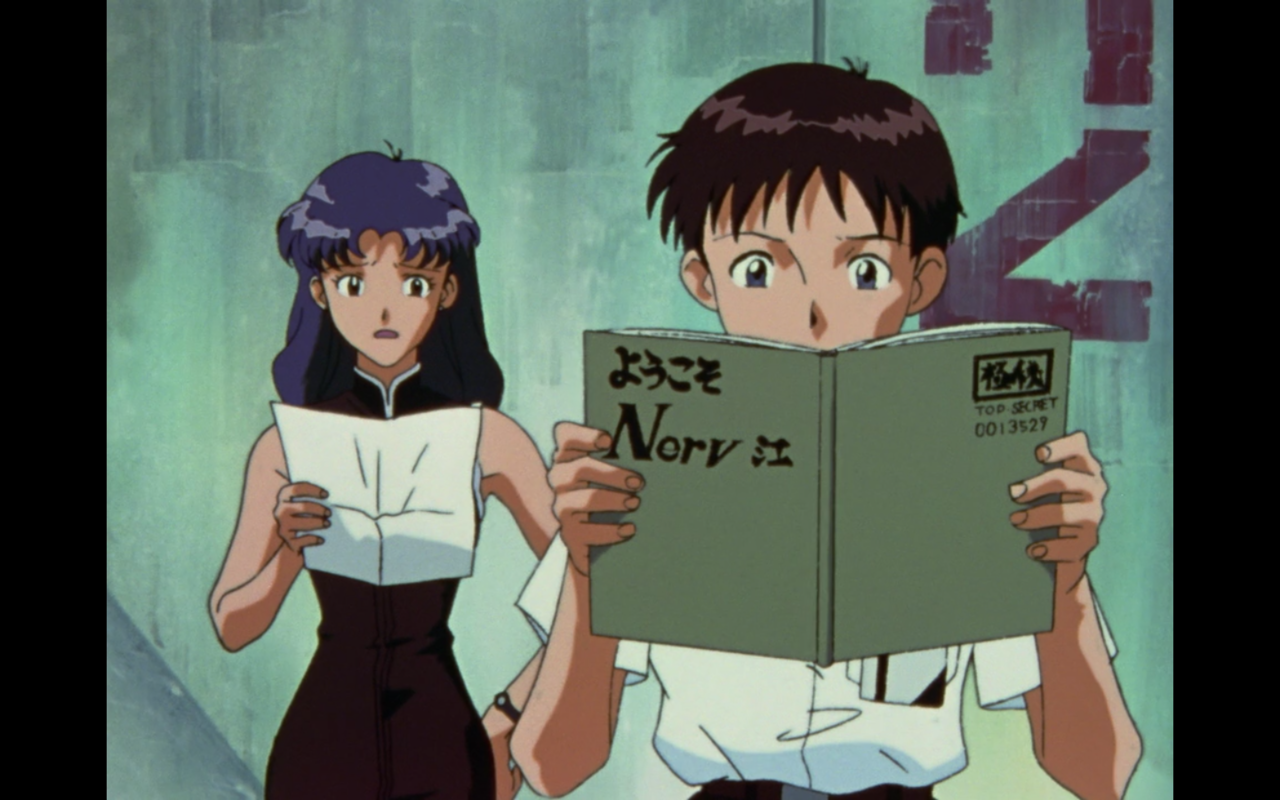Neon Genesis Evangelion: The Biggest Changes In The Netflix Version
GameSpot may receive revenue from affiliate and advertising partnerships for sharing this content and from purchases through links.
How do you feel about the changes?
What do you think of the changes to Neon Genesis Evangelion on Netflix? The streaming giant has secured the rights to the classic anime, but this isn't the same Eva you remember. Read on to find out why, then let us know what you think in the comments below.
Neon Genesis Evangelion, the classic anime series that first aired in Japan in 1995, has arrived on the global streaming service Netflix. In many ways, that's cause for celebration; Eva, as fans call it, has rarely been widely available, with DVD box sets selling for huge sums and many fans resorting to piracy. With a wide release on Netflix, the widest audience ever now has the ability to experience this seminal anime.
But many of Evangelion's most dedicated fans aren't happy with the version that released on Netflix. This isn't the exact same series fans have watched dozens of times on rare DVDs or torrented MPEGs; the version on Netflix has been altered from the original that fans are used to, and many of the changes are fairly significant.
If you're experiencing Neon Genesis Evangelion for the first time on Netflix, or if you watched it years ago and never grew too attached to the version you saw back then, most of this likely won't matter to you. But when a series' biggest fans feel burned, chances are something has gone awry. Here are some of the biggest changes in Netflix's version of Evangelion.
Read next: Every New Summer 2019 Anime Coming To The US (So Far)
1. The end credits song is different
The original anime had a distinctive end credits song: Each episode concluded with a different karaoke-style version of Frank Sinatra's classic lounge hit "Fly Me to the Moon." The covers are missing from the end of each episode, replaced by a piano version of a different song from the show. An inside source reportedly told The Wrap that the change was made for the exact reason you'd expect: licensing fees.
Many fans have taken to Twitter to express their disappointment and, in some cases, outright rage at the change. The strangest part has to be that the song is still present in the Netflix version that airs in Japan, but not in the US.
2. That's not the only place the song is missing
"Fly Me to the Moon" didn't only play at the end of each episode--it was also present within the show itself. The song is no longer in at least one pivotal scene involving a heartbreaking voicemail message. As GameFAQs user Charismatic Zach Gowen put it, the silence where the song used to be "completely changes the tone of the scene."
3. The entire voice cast is different
Many hardcore Eva fans are just as upset about the fact that Netflix's version of the show features a completely new dub by new actors. A new voice cast isn't inherently a bad thing, but fans understandably grew accustomed to hearing the original voice actors as certain characters, and the change feels jarring to some.
On the other hand, some aspects of this change are pretty cool--like the fact that protagonist Shinji Ikari is now voiced by a trans woman, Casey Mongillo. Ultimately, whether you're OK with the new voices will come down to personal preference--unless you're a fan of original Asuka actress Tiffany Grant, who's aired her grievances with the new version publicly.
4. The script is different too
Netflix didn't simply have a new cast read Eva's existing localization--the translation has undergone significant changes as well. Many fans are angry about the changes. The new script seems to be an often more literal translation of the original Japanese writing; for example, in the first episode, Shinji is referred to as "the third children," which may be somehow closer to the original, but makes no sense in English.
5. One scene's gay subtext has been removed
Some fans are especially up in arms about one particular change that's being called "straight-washing." In the original translation, a pivotal scene featured one male character telling another that he is "worthy of love," saying outright, "I love you." In the new version--both out loud and in the subtitles--the character instead says, "You're worthy of my grace," and, "I like you." That's not just awkward--what the hell does "grace" mean in this context?--it totally alters the meaning of the scene.
This may not have been a malicious change--if you go in-depth on the original Japanese, as Reddit user thethirst did, it becomes clear that this is more complicated, due to the ambiguity present in the original Japanese script. The translation most fans are accustomed to used the word "love" to make the scene's subtext explicit, but "The Netflix translation leans into navigating the sort of flirty, wink-wink-nudge-nudge I-like-you-but-you-know-what-like-means-right? that's present in the original script," according to thethirst.
Regardless, the change certainly looks bad, and it's probably not what Netflix wanted people to focus on with this release.
6. Onscreen text has been left untranslated
There are many instances throughout Evangelion of signs, documents, and more objects featuring Japanese text appearing on the screen. For some reason, in Netflix's release, these objects have largely not been translated into subtitles, leaving their meaning a mystery for viewers who don't read Kanji.
7. Cursing has been removed
The Japanese language doesn't have swear words in the sense that we're used to. When mature anime like Neon Genesis Evangelion is localized for Western audiences, the translators often add English language curse words to get Japan's more nuanced context across. Such was the case in Eva's original translation, which featured heavy cursing in several pivotal scenes. However, in Netflix's release, several of those lines have been changed.
For example, a crucial line during the series' conclusion was altered from "I'm so f***ed up" to "I'm the lowest of the low." That reading may be more literal, but it loses the urgency and desperation of the line as originally translated. Similarly, the line "So f***ing what if I'm not you?" was changed to "Fine, so I'm a stranger." The literal meaning is there, but fans are unhappy nonetheless.
8. Here's one more egregious changed line
There are many changes to the script, and if you comb through social media, message boards, and Reddit threads like we did, you'll find countless examples of fans who are pissed off about one change or another. Some seem relatively minor in the grand scheme of things, but others are egregious--like this example.
As Redditor imJoshAdams points out, the line "All is right with the world" has been changed to "All is very good." That might not seem like a big deal, until you realize that the original version is a direct quote from a poem by Robert Browning, which reads, "God's in his heaven--All's right with the world!" Not only that: This poem is present elsewhere within the show--it appears to be a slogan for Nerv, and you can see it in the background in the shot above. Simply put, changing this line doesn't make much sense.
9. No one can decide how to say the word "Nerv"
This may be a nitpick, but it's one that jumped out at me: The English language voice actors couldn't seem to agree on how to say the word "Nerv." Fans have been pronouncing it like "nerve" for decades, but in the new dub, several characters seem to say "nairv" for some reason. Worse, it's literally different from scene to scene.
Did we miss any major changes in Netflix's version of Neon Genesis Evangelion? Let us know in the comments below, and tell us whether you're OK with these changes, or if you'll stick to watching the original version.


